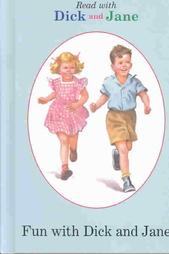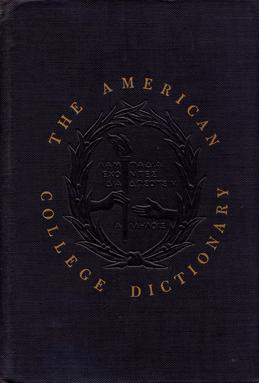
A dictionary is a listing of lexemes from the lexicon of one or more specific languages, often arranged alphabetically, which may include information on definitions, usage, etymologies, pronunciations, translation, etc. It is a lexicographical reference that shows inter-relationships among the data.

An encyclopedia or encyclopaedia is a reference work or compendium providing summaries of knowledge, either general or special, in a particular field or discipline. Encyclopedias are divided into articles or entries that are arranged alphabetically by article name or by thematic categories, or else are hyperlinked and searchable. Encyclopedia entries are longer and more detailed than those in most dictionaries. Generally speaking, encyclopedia articles focus on factual information concerning the subject named in the article's title; this is unlike dictionary entries, which focus on linguistic information about words, such as their etymology, meaning, pronunciation, use, and grammatical forms.
Lexicography is the study of lexicons and the art of compiling dictionaries.. It is divided into two separate academic disciplines:

The Oxford English Dictionary (OED) is the principal historical dictionary of the English language, published by Oxford University Press (OUP), a University of Oxford publishing house. The dictionary, which published its first edition in 1884, traces the historical development of the English language, providing a comprehensive resource to scholars and academic researchers, and provides ongoing descriptions of English language usage in its variations around the world.
In English writing, quotation marks or inverted commas, also known informally as quotes, talking marks, speech marks, quote marks, quotemarks or speechmarks, are punctuation marks placed on either side of a word or phrase in order to identify it as a quotation, direct speech or a literal title or name. Quotation marks may be used to indicate that the meaning of the word or phrase they surround should be taken to be different from that typically associated with it, and are often used in this way to express irony. They are also sometimes used to emphasise a word or phrase, although this is usually considered incorrect.
Webster's Dictionary is any of the English language dictionaries edited in the early 19th century by Noah Webster (1758–1843), an American lexicographer, as well as numerous related or unrelated dictionaries that have adopted the Webster's name in his honor. "Webster's" has since become a genericized trademark in the United States for English dictionaries, and is widely used in dictionary titles.
A vocabulary is a set of words, typically the set in a language or the set known to an individual. The word vocabulary originated from the Latin vocabulum, meaning "a word, name". It forms an essential component of language and communication, helping convey thoughts, ideas, emotions, and information. Vocabulary can be oral, written, or signed and can be categorized into two main types: active vocabulary and passive vocabulary. An individual's vocabulary continually evolves through various methods, including direct instruction, independent reading, and natural language exposure, but it can also shrink due to forgetting, trauma, or disease. Furthermore, vocabulary is a significant focus of study across various disciplines, like linguistics, education, psychology, and artificial intelligence. Vocabulary is not limited to single words; it also encompasses multi-word units known as collocations, idioms, and other types of phraseology. Acquiring an adequate vocabulary is one of the largest challenges in learning a second language.

The Century Dictionary and Cyclopedia is one of the largest encyclopedic dictionaries of the English language. It was compared favorably with the Oxford English Dictionary, and frequently consulted for more factual information than would normally be the case for a dictionary.

Dick and Jane are the two main characters created by Zerna Sharp for a series of basal readers written by William S. Gray to teach children to read. The characters first appeared in the Elson-Gray Readers in 1930 and continued in a subsequent series of books through the final version in 1965. These readers were used in classrooms in the United States and in other English-speaking countries for nearly four decades, reaching the height of their popularity in the 1950s, when 80 percent of first-grade students in the United States used them. Although the Dick and Jane series of primers continued to be sold until 1973 and remained in use in some classrooms throughout the 1970s, they were replaced with other reading texts by the 1980s and gradually disappeared from school curricula.

A Greek–English Lexicon, often referred to as Liddell & Scott or Liddell–Scott–Jones (LSJ), is a standard lexicographical work of the Ancient Greek language originally edited by Henry George Liddell, Robert Scott, Henry Stuart Jones, and Roderick McKenzie and published in 1843 by the Oxford University Press.
Zerna Addas Sharp was an American educator and book editor who is best known as the creator of the Dick and Jane series of beginning readers for elementary school-aged children. Published by Scott, Foresman and Company of Chicago, Illinois, the readers, which described the activities of her fictional siblings, "Dick," "Jane," "Sally," and other characters, were widely used in schools in the United States and many other English-speaking countries for nearly forty years. The series, which included such titles as We Look and See, We Come and Go, We Work and Play, and Fun with Dick and Jane, among others, was marketed until 1973 and used the look-say method of teaching reading.

Random House Webster's Unabridged Dictionary is a large American dictionary, first published in 1966 as The Random House Dictionary of the English Language: The Unabridged Edition. Edited by Editor-in-chief Jess Stein, it contained 315,000 entries in 2256 pages, as well as 2400 illustrations. The CD-ROM version in 1994 also included 120,000 spoken pronunciations.
Clarence Lewis Barnhart (1900–1993) was an American lexicographer best known for editing the Thorndike-Barnhart series of graded dictionaries, published by Scott Foresman & Co. which were based on word lists and concepts of definition developed by psychological theorist Edward Thorndike. Barnhart subsequently revised and expanded the series and with the assistance of his sons, maintaining them through the 1980s.
Robert K. Barnhart was an American lexicographer and editor of various specialized dictionaries. He was co-editor, with his father Clarence Barnhart, on some editions of the Thorndike-Barnhart dictionaries and The World Book Dictionary. With his father and Sol Steinmetz, he edited the three volumes of The Barnhart Dictionary of New English.
David K. Barnhart is an American lexicographer who specializes in new words. He began his career helping his father, Clarence Barnhart, edit the Thorndike-Barnhart dictionary series.
Japanese dictionaries have a history that began over 1300 years ago when Japanese Buddhist priests, who wanted to understand Chinese sutras, adapted Chinese character dictionaries. Present-day Japanese lexicographers are exploring computerized editing and electronic dictionaries. According to Nakao Keisuke (中尾啓介):
It has often been said that dictionary publishing in Japan is active and prosperous, that Japanese people are well provided for with reference tools, and that lexicography here, in practice as well as in research, has produced a number of valuable reference books together with voluminous academic studies. (1998:35)
William S. Gray was an American educator and literacy advocate, who was commonly referred to as "The father of Reading".

Scott Foresman was an elementary educational publisher for PreK through Grade 6 in all subject areas. Its titles are now owned by Savvas Learning Company which formed from former Pearson Education K12 division. The old Glenview headquarters of Scott Foresman is empty as of August 2020, and Crain's Chicago Business reported that the broker hired to sell the property had missed a mortgage payment.

The American College Dictionary was the first Random House dictionary and was later expanded to create the Random House Dictionary of the English Language. First published in 1947, The American College Dictionary was edited by Clarence Barnhart based on the 1927 New Century Dictionary.
Sol Steinmetz was a Hungarian American linguistics and lexicography expert who wrote extensively about etymologies, definitions and uncovered earliest recorded usages of words in English and Yiddish. A widely sought source on all things lexical, he earned recognition from William Safire in his On Language column in The New York Times Magazine in 2006 as a "lexical supermaven".







